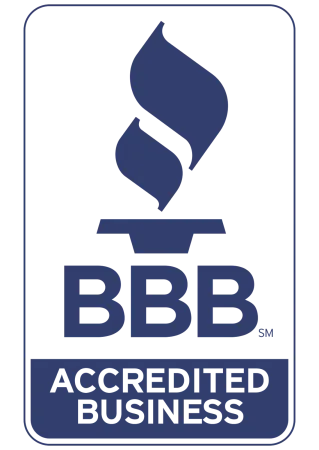Utility bills are a household staple, but so are the scammers who prey on them. If you're worried about a family energy scam or general utility fraud, you're wise to stay vigilant - these schemes cost Americans millions annually. As of October 2025, utility impostor scams are surging, often disguised as urgent payment demands or fake service upgrades. This guide from Healthcare Employees Federal Credit Union (HEFCU) equips you with the latest trends, warning signs, and proven strategies to shield your wallet and peace of mind.
From healthcare workers juggling shifts to families budgeting for rising energy costs, everyone is a potential target. Knowledge is your best defense - let's break it down.
Utility Scam Trends in 2025: What's Fueling the Surge?
Utility scams aren't slowing down; they're accelerating with tech-savvy twists. In 2025, reports indicate a sharp uptick, driven by economic pressures and advanced tactics like AI voice cloning. Key trends include:
Impostor Scams Dominate: Fraudsters pose as utility reps demanding immediate payment via gift cards or wire transfers, with bogus refund offers and phony energy audits on the rise. In Pennsylvania alone, these schemes are climbing, preying on fears of service shutoffs.
High-Volume Targeting in Key Regions: Pacific Gas and Electric (PG&E) customers reported over 2,500 scam attempts in 2025 so far, resulting in more than $190,000 in losses across 200+ victims - an average hit of nearly $1,000 per case. January saw over 1,700 reports, signaling no summer lull.
ESCO and Third-Party Energy Scams: Companies like Family Energy have faced backlash for deceptive practices, such as misleading contracts and inflated rates, leading to thousands of complaints about unauthorized enrollments and billing fraud. These family energy scams often start with door-to-door pitches or unsolicited calls promising savings but locking families into costly plans.
AI-Enhanced Threats: Scammers use deepfakes for convincing "utility outage" alerts, blending with phishing texts (smishing) tied to toll services. Overall, imposter and investment scams top the 2025 fraud watchlist.
With energy prices volatile, scammers exploit urgency - but awareness from initiatives like Utilities United Against Scams is helping fight back.
What Are Utility Scams?
Utility scams involve criminals impersonating power, water, gas, or telecom providers to steal money or data. Common variants:
Shutoff Threats: Fake calls claiming overdue bills require instant payment to avoid disconnection.
Meter Tampering or Inspection Frauds: Door-knockers demanding access to "inspect" equipment, often to steal info or install malware.
ESCO Enrollment Tricks: Like family energy scams, where third-party suppliers sign you up without consent, hiking rates under false "savings" promises.
Phony Refunds or Upgrades: Emails or texts luring you to fake sites for "rebates" that harvest credentials.
These hit hard in summer heatwaves or winter storms, when service fears peak.
Red Flags: Spot a Utility Scam Before It Hooks You
Trust your gut - these signs scream scam:
High-Pressure Tactics: Demands for immediate payment via untraceable methods like crypto, gift cards, or apps - not standard utility practice.
Unsolicited Contacts: Calls, texts, or visits you didn't initiate, especially spoofing legit numbers or using urgency like "Pay now or lose power."
Requests for Sensitive Data: Asking for account numbers, SSNs, or on-site access without verification.
Too-Good-to-Be-True Offers: "Free energy audits" or rate locks that require upfront fees or personal info.
Inconsistent Branding: Emails with odd domains (e.g., not @hefcu.com) or poor grammar in "official" notices.
In family energy scam cases, watch for vague contract fine print or sudden bill spikes post-signup.
How to Protect Yourself from Utility Scams: Essential Steps
Stay scam-free with these 2025-proof habits:
1. Verify Independently
Never respond directly - hang up and call your utility's official number from their website or bill. For HEFCU members, cross-check any linked financial impacts with us.
2. Secure Your Accounts
Enroll in paperless billing and auto-pay to dodge fake notices.
Use strong, unique passwords and enable alerts for unusual activity.
Opt for legitimate ESCOs only - research via state utility commissions.
3. Educate and Arm Your Household
Discuss scams at family dinners, especially family energy scams that target multi-person homes. Apps like Truecaller can flag spam calls.
4. Report and Monitor
If suspicious, report to the FTC at ReportFraud.ftc.gov and your utility. Freeze credit if data's compromised.
5. Leverage Tech Defenses
Antivirus with scam detection and caller ID apps block 90% of threats - pair with HEFCU's fraud monitoring for financial layers.
What to Do If You're a Victim of a Utility Scam
Speed is key:
Contact Your Utility: Report the incident; they won't disconnect for unpaid scam debts.
Alert HEFCU and Authorities: Call our fraud line at (609) 951-0700; file with FTC and local police.
Secure Finances: Change passwords, monitor statements, and consider credit monitoring.
Seek Reimbursement: Dispute charges via your bank; utilities often assist with recovery.
Get Support: HEFCU's counselors offer free advice to rebuild.
You're not at fault - reporting disrupts scammers.
Partner with HEFCU for Scam-Resistant Finances
At Healthcare Employees Federal Credit Union, we prioritize your security amid rising threats like utility scams. Enable transaction alerts on your account today and join our "Scam-Proof Your Wallet" webinar this fall.
Ready to fortify? Visit hefcu.com or a branch - let's keep your energy (and money) flowing safely.
Questions? Contact us or call (609) 951-0700.



